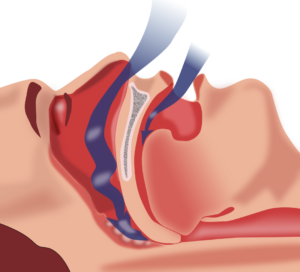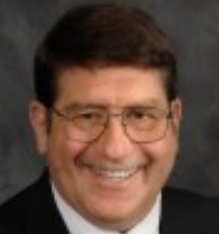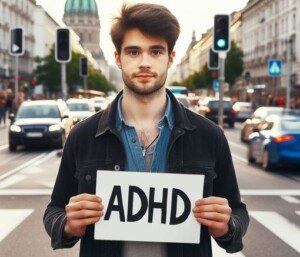If you or your child’s been diagnosed with ADHD, you might really have sleep apnea and were misdiagnosed.
The symptoms of ADHD mimic the symptoms of sleep apnea.
It’s not at all uncommon for people (kids and adults) who’ve been diagnosed with ADHD, to actually have untreated sleep apnea instead.
People who have been labeled as “ADHD” should get tested for sleep apnea, which afflicts some 18 million Americans, and many don’t even know they have it.
What does the test for sleep apnea involve?
“Spend the night hooked to a machine that monitors your breathing, brain activity, eye movement, muscle tone and oxygen levels,” says Dr. Frank Barnhill, MD, board certified family physician practicing child and adult preventative care/ADHD-behavior medicine in upstate South Carolina.
Don’t let this description intimidate you.
The home test is quite simple: A device the size of a small TV is placed in your bedroom, and you simply clip a monitor to your finger at bedtime and snooze away with that on.
In the morning you remove it, and a technician will return to pick up the unit, which will have recorded all your overnight data. Or, you may drop it off at your medical office.
Sleep apnea is when a person stops breathing throughout the night (during sleep). Interestingly, the patient often is not aware of this.
The body’s autonomic nervous system kicks in and makes breathing resume, and the patient usually sleeps through these apnea episodes.
However, they leave their mark: Daytime symptoms that mimic ADHD are, says Dr. Barnhill:
“Irritability and impulsivity, poor concentration, difficulty maintaining focus, problems organizing, poor school performance.
“All of these occur as a result of not getting adequate rapid eye movement (REM) and deep stage sleep.”
What is sleep apnea?
In the early stages of sleep, a person (child or adult) begins snoring (obstructive sleep apnea), or develops “sighing breaths” (central SA or OSA-CSA combination).

The obstruction in sleep apnea. Habib M’henni, Wikimedia Commons
As the SA progresses, respiration is interrupted by hypopneas (irregular partial breaths) or stopped breathing (apneas).
These breathing problems cause the person to either awaken with the sensation of struggling to inhale, or, the person only partially awakens and doesn’t remember the incident.
“Hypopneas are breaths that, while not normal, are at least partially effective in moving air in and out of the lungs,” says Dr. Barnhill.
“We call them mini-breaths — sort of like rapid shallow breathing. These episodes can occur hundreds of times a night.”
The individual ends up awakening throughout the night many times, getting no restorative sleep.
Fallout of Sleep Apnea
Being deprived of restorative sleep on a recurring basis means you’ll be prone to irritability, fatigue, even muscle aches, and “all of this causes problems with brain related functions such as short-term memory, thought processing, a decrease in the normal inhibition of impulsivity and aggressiveness (the judgment centers) and ability to maintain attention span,” says Dr. Barnhill.
The brain’s executive thought processing centers take a hit from the low oxygen levels caused by the sleep apnea. “It’s hard to think clearly when your brain is tired.”
If you don’t have ADHD and instead have sleep apnea, your ADHD medications will be pretty much useless.
However, it’s also possible that you can have both ADHD and sleep apnea.
ADHD is not a life-threatening situation, but sleep apnea can have life-threatening consequences.
Cardiovascular problems. The sudden drops in blood oxygen that result from stopped breathing can have devastating consequences, including sudden cardiac arrest.
Stroke and high blood pressure can also result, along with congestive heart failure and heart rhythm disorders.
Excessive fatigue. Though the patient is usually not aware of the apnea episodes, they do result in loss of restorative sleep, and this leads to daytime drowsiness, irritability, moodiness and poor concentration; those last three sound a lot like ADHD, right?
Other cognitive problems. Memory may be affected, and mood swings and depression may be present. You may even be a bit hyperactive.
Perhaps you believe that only overweight, thick-necked people get sleep apnea, and if you’re thin, you don’t believe you might have this condition and instead think you have ADHD.
However, sleep apnea can occur in skinny people, including children!
So if you’re a young adult with an ADHD diagnosis and weigh only 150 pounds, it would be smart to get tested for sleep apnea.
 In practice for 30+ years, Dr. Barnhill is the author of “Mistaken for ADHD.” He has additional training in Infant, child and adolescent medicine, urgent and emergent medicine, and gerontology.
In practice for 30+ years, Dr. Barnhill is the author of “Mistaken for ADHD.” He has additional training in Infant, child and adolescent medicine, urgent and emergent medicine, and gerontology.
 Lorra Garrick has been covering medical, fitness and cybersecurity topics for many years, having written thousands of articles for print magazines and websites, including as a ghostwriter. She’s also a former ACE-certified personal trainer.
Lorra Garrick has been covering medical, fitness and cybersecurity topics for many years, having written thousands of articles for print magazines and websites, including as a ghostwriter. She’s also a former ACE-certified personal trainer.
.










































